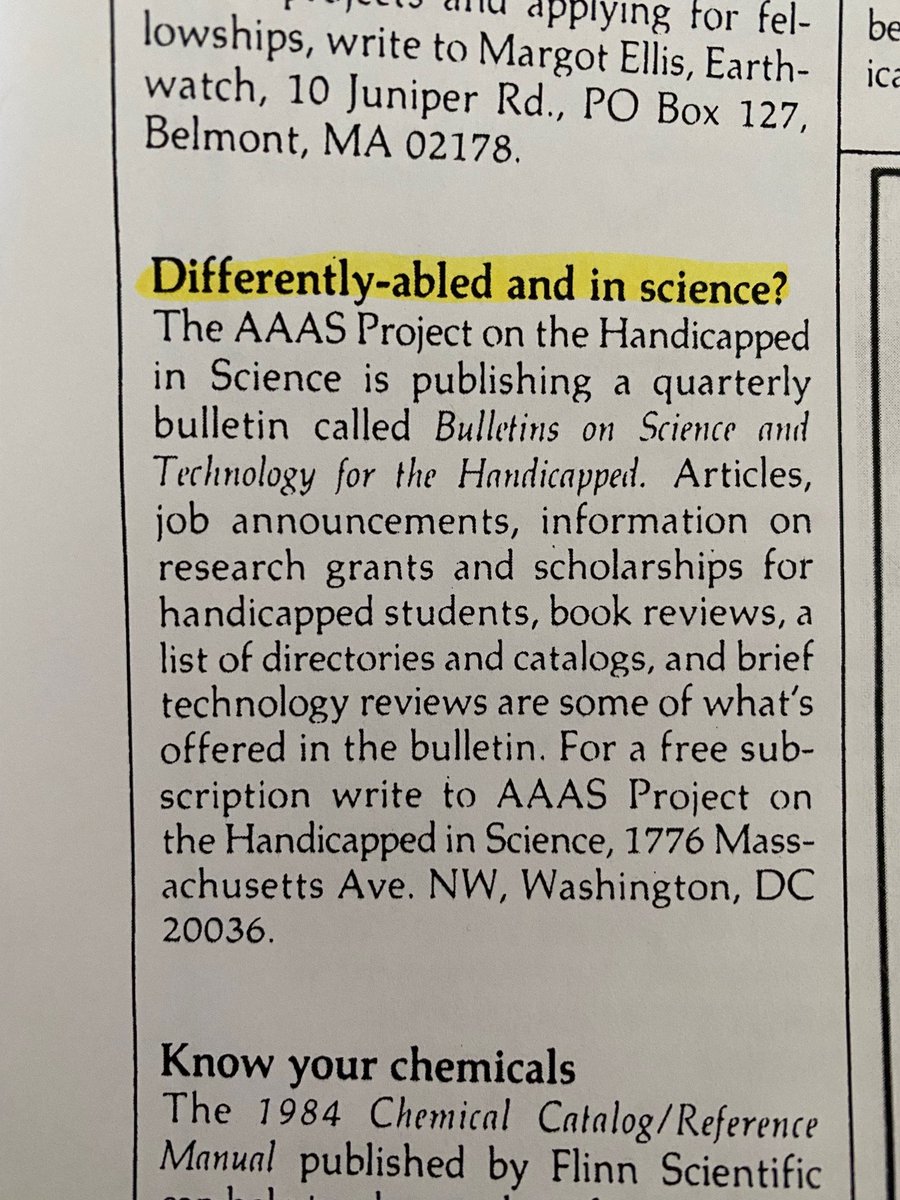
The TERF etymology of 'differently abled', a thread:
Some years ago, I decided to track down the history of the term 'differently abled'. It is a journey that took me all the way back to the Michigan Womyn's Music Festival in the 1970s. en.wikipedia.org/wiki/Michigan_…
MichFest as it became known, was held annually beginning in 1976. It eventually shut down in 2015, a year after a large boycott due to its policy of excluding trans women. Michfest only admitted "womyn-born womyn".
Michfest attracted disabled "womyn" early on by prioritizing accessibility. The only electricity attendees had access to were in the tents that were created for disabled folks. Like the other areas at MichFest, these tents housed lots of sex.
The disabled "womyn" who attended MichFest decided to create another term for themselves while they were at this event. And fairly quickly, probably by the end of the first year, the term became 'differently abled.'
And those tents they used got renamed. They were now called DARTs. Differently Abled Resource Tents.
The first usage of 'Differently Abled' that I have found is from a journal called 'Off Our Backs', in an issue that focused on "michigan festival: music matriarchy, malelessness". It was printed in October of 1980. 

Three and a half years later it appeared in the Spring 1984 issue of Feminist Studies. Helaine Victoria Press included 'differently-abled' women in a call for postcards. 

But the next usage is what I have lingered on for years. In a September 1984 issue of 'The Science Teacher' which is published by the National Science Teacher's Association, there is an advertisement with the header "Differently-abled and in science?" 

How did 'Differently Abled' leap from feminist journals to a journal written for science teachers with nothing in between? At first I thought the author of the header must be involved with the AAAS Project.
But then I realized the AAAS description says 'handicapped' repeatedly, and so I believe whoever curated the 'Taking Note' section of 'The Science Teacher' likely wrote all of the headers. 

And this feels important, because this is the moment that denotes a shift from the liberated usage of this term to describe sexual disabled adults to something that was used to describe students. Who wrote this and what was her relationship to MichFest?
Anyway, this is where things get fascinating. On April 9, 1985, someone named Jack Smith wrote an op/ed in the Los Angeles Times titled "Is the language itself disabled in that it can’t fairly define the handicapped?" latimes.com/archives/la-xp…
This article is actually where my journey began. In it, he discusses how the Democratic National Committee 'coined differently abled', "in a valiant effort to find a kinder term than handicapped"
Smith goes on to describe a letter he has from "the Women's Center, UC Santa Barbara, from Margareth Annschild, director." In it she states "We welcome the differently able." I'm dying to know what Margareth Annschild's relationship was to MichFest.
Not long after, the National Review dismissed the 'valiant' term 'differently abled' as "semantic gobbeldygook." I seem to have misplaced this gem of a printout that I spent hours trying to locate at the NYPL, so need to go back and get it. But the rest, I suppose, is history.
Also, I have an interesting etymology/history of the phrase 'curb cut effect' but need a few more weeks to figure a couple elements of it out. If anyone wants to build on this differently abled etymology - feel free to reach out. Would be happy to send everything I have.
Incredible! Here's 'differently abled' in a Long Island Newsday in 1976. [ID: a 13 year old wheelchair user used 'differently abled']
https://twitter.com/transadvocate/status/1490508383220285442
I want to note I have long felt that Connie Panzarino was influential in 'differently abled' at MichFest. She was from the Boston area. Looking into a list of other early disabled attendees to see who else might have been on the east coast. sealpress.com/titles/connie-…
I so wish to understand this dynamic of a term being taken up by two distinct populations. One of them being disabled children (and their parents). The other being liberated disabled adults.
Here's another from 1980.
https://twitter.com/WynneDiesel/status/1490688337157533699
• • •
Missing some Tweet in this thread? You can try to
force a refresh






